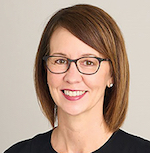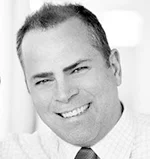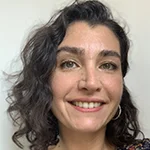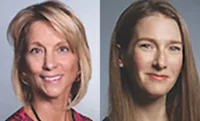 Sharon M. Reis Sharon M. Reis |
A recent Gallup poll found employee engagement is falling and a new trend—doing the minimum to get by—permeates a good portion of the workforce. What are communications leaders doing to combat this “quiet quitting” trend and build the healthcare communications workforce of the future?
Just as the basic nature of how and where we work is changing, so are the skill sets required for the next generation of PR professionals. With such a tight market for hiring, many employers are rethinking their approach to filling staffing needs. We’re making an even more concerted effort to bring in early career colleagues from diverse backgrounds and industries. Having a degree in communications or journalism is no longer the typical entryway to the field. Our firm recently made three amazing hires: one with a master’s degree in public health, another with a political science background and a recent college graduate with a double major in English and marketing.
Offer a career roadmap
Our agency is learning that young people who are smart, curious and good writers are very trainable. We embrace the challenge of building new skill sets. We’ve created an onboarding process that spans not just a few weeks, but your first six months with the firm. We put a lot of time and effort into ensuring that new team members experience a thorough and positive onboarding process that flows naturally into a long-term professional development calendar. On day one, we start teaching and modeling for them what it means to work at an agency and become a well-rounded PR professional, in line with our firm’s established values and standards.
| This article is featured in O'Dwyer's Oct. '22 Healthcare & Medical PR Magazine (view PDF version) |
In fact, TRG’s senior team has put together a “career roadmap” and a robust professional development schedule to help our new teammates continually learn and grow. We’ve also outlined varied paths that build and foster everyone’s individual strengths. New arrivals define for themselves what success means to them for their career. It’s very personalized. The nurturing and growing of colleagues is built into the roles and responsibilities of mid- and senior-level team members and that’s how we’re thoughtfully and intentionally creating the next generation of healthcare PR professionals.
Grow communications skill sets
Are there any new skills needed to be successful? “The proliferation of new digital and social channels does require some new technical skills such as using software to do social media listening in public relations or big-data analysis in market research,” said Anya Karavanov, PhD, Senior Professorial Lecturer in the School of Communication at American University in Washington, D.C. “However, fundamentally, the essential skills remain the same—strategic thinking, ability to identify and leverage insight, excellent writing, ‘deep’ listening, flexibility and ability to think on your feet, as well as relationship building. These skills remain critical to being successful in the field.”
Our industry has fully embraced digital and social platforms. They’re an important tool in our communications toolbox, but they need to be part of a bigger strategic communications framework. Our clients need experience and engagement from our team as much as they need these specialized skills.
“What’s changing is that more people are entering the field with specialized skill sets: social media, ad buying, messaging and branding, and the like,” said Joseph LaMountain, agency veteran and former professor at Georgetown University. “What’s often in short supply are strategists, the big-picture thinkers who understand how all these things work together and who can create the overarching strategic vision for an engagement. We need specialists, of course, but their effectiveness will be limited by the quality of the strategists who are developing your outreach campaigns.”
While storytelling remains essential, how we deliver stories has changed. “We’re in an environment that is much more visual and screen-oriented than two years ago,” said Elise Castelli, Director, Communications and Public Relations at the Society of Interventional Radiology. “With the popularity of Zoom and TikTok accelerating rapidly during the pandemic, the demand for video across all platforms has increased. Luckily Zoom and other products make it easy to capture and edit videos in-house.”
Optimize the hybrid experience
Nearly as important as having the right skill set is creating a positive workplace culture, which can be even more challenging in a hybrid-work world. “My best insight into creating a successful hybrid work environment isn’t great news for managers: to do it right, it will take more work,” said Josh Wilson, Director of Strategic Communications at Children’s National Hospital in Washington. “If people are coming into an office and spending most of the day on Zoom, I’m certain folks aren’t happy. No one wants to make a commute, pay for parking and buy a Sweet Greens salad to do exactly what they could do from home.”
As the pandemic waned, at TRG we started coming into the office three days a week, and some of our team found it challenging. Disruptions seemed to regularly come up where people needed to work from home, whether it was COVID exposures, doctor’s appointments, child-care crises, train delays or something else. We talked about it, and we decided to adjust our time by choosing two days a week where everyone is in the office on the same days, and it seems to be working well.
Many of us are able to have a hybrid work environment that includes increased flexibility and, for me, far less time spent commuting. However, the increased flexibility is sometimes in direct conflict with our on-demand schedule. We’re frequently called to spring into action when a crisis arises, a new opportunity emerges or an unexpected client demand surfaces. The trend of some employees doing just the minimum to get by could do some big damage in healthcare PR. Our industry has thrived on people going above and beyond, especially during this pandemic, and we need to think creatively to maintain that effort and energy as we move forward.
***
Sharon M. Reis is Principal of The Reis Group, a Washington, D.C.-based Healthcare PR agency. A 25-year veteran of the public relations industry who has long been dedicated to representing top-tier clients in health and healthcare, is Reis named one of the top women in public relations, she has worked extensively with medical societies, foundations, and academic institutions on communications strategy and issues management.


 Lo Isidro, senior director at Real Chemistry with more than a decade of strategic communications and PA experience, has joined Narrative Strategies.
Lo Isidro, senior director at Real Chemistry with more than a decade of strategic communications and PA experience, has joined Narrative Strategies. Nelson Fernandez, former North American chair of APCO Worldwide and managing director of Burson-Marsteller, has joined Volunteers in Medicine Berkshires as director of communications and PA.
Nelson Fernandez, former North American chair of APCO Worldwide and managing director of Burson-Marsteller, has joined Volunteers in Medicine Berkshires as director of communications and PA. Lilit Bargar, who was most recently an EVP in the healthcare practice at Weber Shandwick, comes on board at GCI Health as EVP, corporate practice lead.
Lilit Bargar, who was most recently an EVP in the healthcare practice at Weber Shandwick, comes on board at GCI Health as EVP, corporate practice lead.
 Five ways that successful thought leaders are made.
Five ways that successful thought leaders are made.


 Have a comment? Send it to
Have a comment? Send it to 
No comments have been submitted for this story yet.